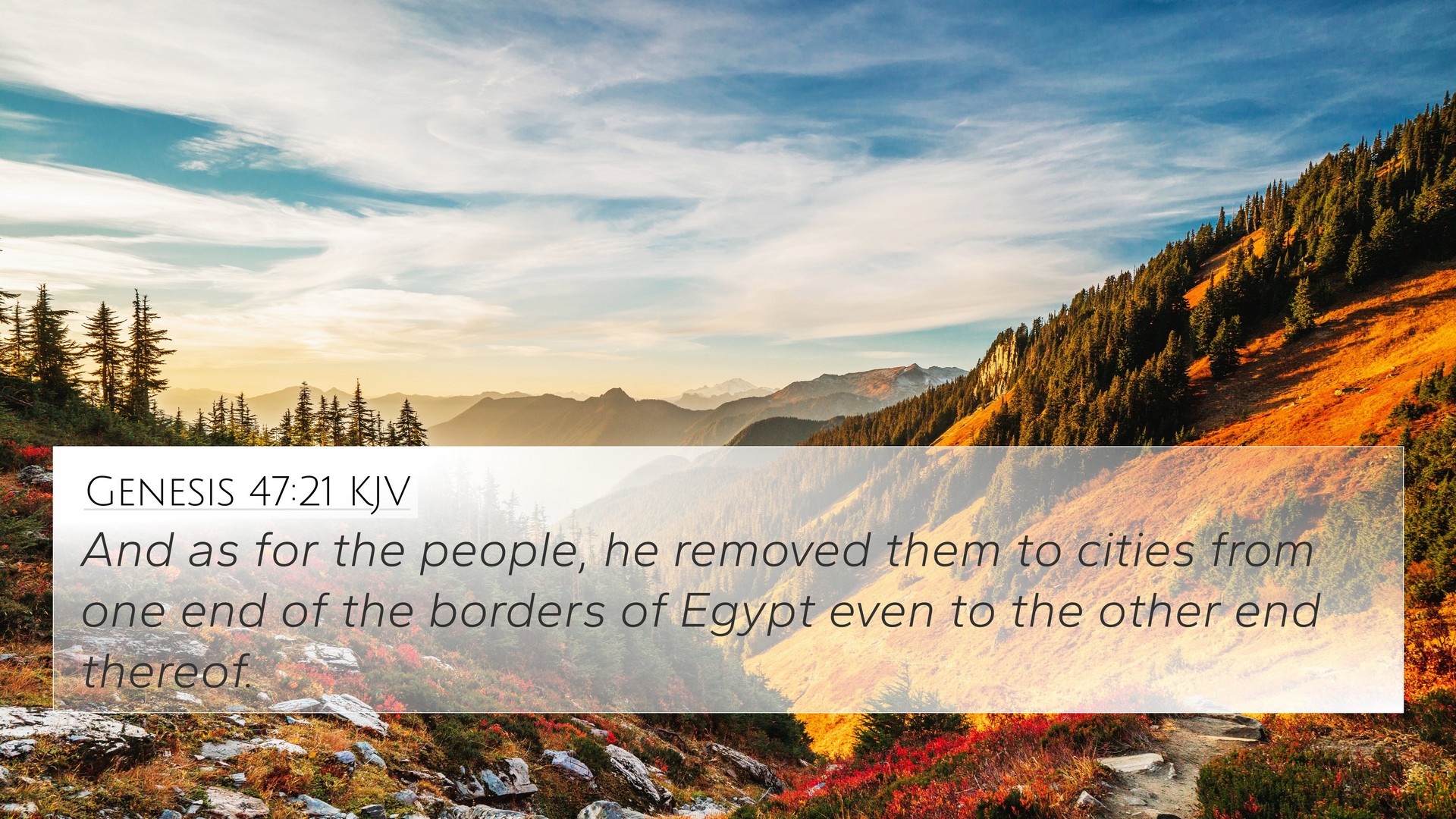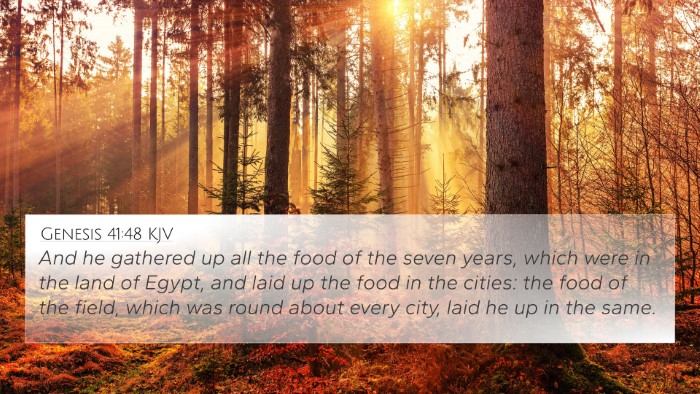Understanding Genesis 47:21
Genesis 47:21 states, "And as for the people, he removed them to cities from one end of the borders of Egypt even to the other end thereof." This verse is a significant part of the narrative concerning Joseph's governance during a time of famine in Egypt.
The meaning and implications of this verse can be unpacked through various public domain commentaries, offering insights on the political, social, and religious ramifications of Joseph's actions.
Contextual Analysis
This verse occurs during a pivotal moment when Joseph had just successfully managed the famine crisis, where he had stored grain and later distributed it back to the people. The relocation of the people into cities illustrates the consolidation of power and the strategic management of resources.
Commentary Insights
-
Matthew Henry:
Henry notes that Joseph’s actions were wise, reflecting a careful leadership that aimed to organize the population for both economic stability and social order. By moving the people to cities, he facilitated better management of resources and ensured that they were supported during the ongoing famine.
-
Albert Barnes:
Barnes highlights the effect of this relocation on the governance of Egypt, emphasizing that it represented a shift in the structure of society. The people’s dependency on the state for sustenance increased, illustrating a transition from autonomy to reliance on government provisions.
-
Adam Clarke:
Clarke addresses the moral and ethical dimensions of Joseph's decisions. He raises questions about the implications of such power exertion over the people, yet acknowledges that Joseph acted with the intent of saving lives during a catastrophic period.
Thematic Connections
This verse ties into broader themes found within Scripture, including leadership, stewardship, and divine providence. Understanding Genesis 47:21 can be enriched by examining related verses and concepts.
Cross-References
- Genesis 41:46: Joseph is appointed to manage Egypt during the years of famine.
- Genesis 42:6: Joseph's status as governor reflects his leadership role in navigating the famine crisis.
- Exodus 1:11: The establishment of city-states foreshadows later developments in Egyptian governance.
- Acts 7:14: Stephen recounts the historical context of Joseph's role in Egypt, linking it to the broader narrative of Israel’s story.
- Proverbs 16:9: The idea that the Lord guides human plans reflects Joseph’s reliance on divine providence in leadership.
- Matthew 25:14-30: The parable of the talents illustrates stewardship and resource management, akin to Joseph’s actions.
- 1 Corinthians 4:2: A reminder that it is required of stewards to be found faithful, relevant to Joseph's responsible governance.
Conclusion
Genesis 47:21 presents a rich tapestry of themes ranging from governance to divine intervention. By utilizing tools for Bible cross-referencing and exploring various commentaries, one can gain deeper insights into the text and its significance within the larger biblical narrative.
Further Study Suggestions
For those interested in pursuing a comprehensive understanding of Genesis 47:21, consider the following:
- Utilize a Bible concordance to identify related verses.
- Engage in comparative Bible verse analysis to draw connections with New Testament teachings.
- Participate in cross-reference Bible study methods to witness inter-Biblical dialogue.
- Explore tools for Bible cross-referencing available in libraries and online resources.



